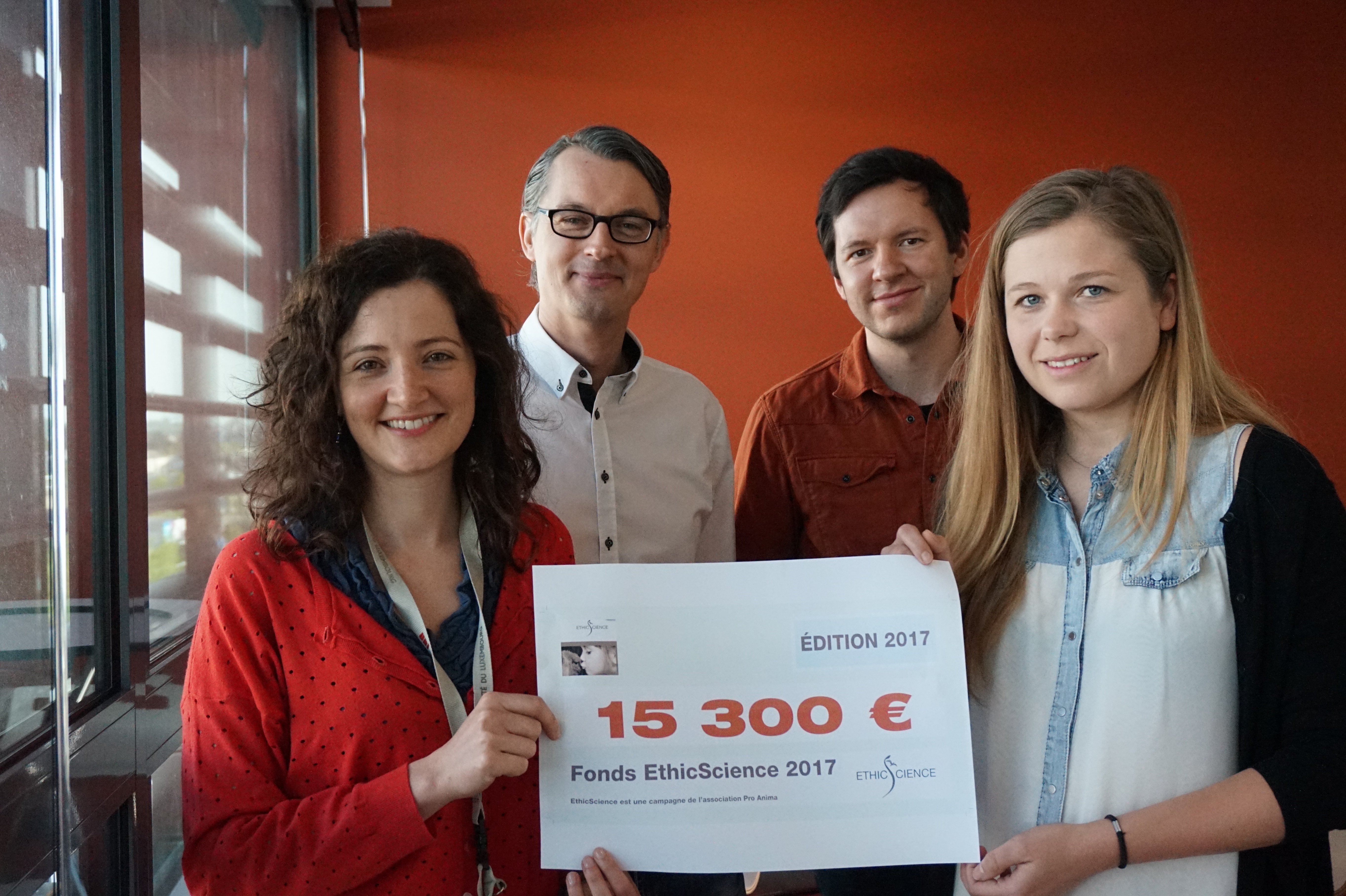
Parkinson : we gave financial assistance to researchers
24 April 2018
For the 5th consecutive year, Pro Anima is proud to offer financial support to researchers dedicated in the creation and implementation of new scientific tools which do not involve animal experimentation.
We are grateful to our donors for their commitment and support in making a difference by promoting new technologies in the scientific field, and grateful to these talented scientist for developing new ways to design our new therapies.
Read what Dr Silvia Bolognin had to say about the significant potential of these new technologies.

Can you describe the technology the members of our NGO have supported ?
Btech focuses on diseases that are affecting the brain, in particular those associated to ageing like Parkinson’s Disease. These diseases have been classically studied in animal models (mainly rodents). BTech instead makes use of a technology called stem cells. Stem cells can be generated from blood or small pieces of skin from any given individual. We use these stem cells to generate brain-like tissue where the cause of these diseases can be better studied and where the effect of potential new drugs can be tested.
Traditional Research in Neurodegenerative Diseases appears to be at a standstill. Is this true and how do you think you can achieve a better understanding of diseases like Parkinson ?
Unlike other medical fields, the cause of the majority of neurodegenerative diseases is still unknown and more importantly, effective therapeutic options are not yet available to the patients. We believe one of the reasons why the scientific community has not yet progressed, despite tremendous efforts, is the excessive reliance of the past to animal models. Diseases such as Parkinson do not occur in animals, so we think the only way to study it in a relevant manner is to focus on alternative methods, which more closely resemble the human physiology.
Do you notice a rising interest in those new technologies ?
Yes, we have encountered a progressively increasing interest at a regulatory level. For example, the European Union has made clear its intention to consider the use of models, alternative to animals, for scientific research. The pharmaceutical industry also seems to be very receptive towards the optimization of this kind of technology, which might boost the drug discovery pipeline with a new perspective.
How do you see the future of research ?
The technological advancements we have witnessed in the last 10 years have been tremendous. Today we are able to analyze complex problems as never before thanks to the increasing application of computational and automated processes to science. This trend will certainly increase in the next years and we are excited to contribute, as much as we can, to this dynamic moment. Although the way towards curing debilitating disorders such as Parkinson will continue to present some challenges, the latest technological advancements hold the potential for making huge steps forward to persistently increasing our knowledge on disease mechanisms.


